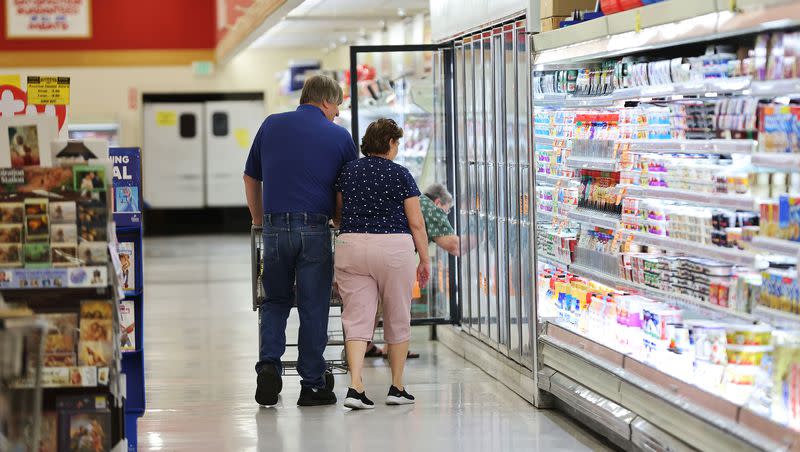Cowless milk and cheese? Tech-made fermentation process mimics natural dairy

Lab-grown dairy is the latest tech innovation in the food realm, no cows required.
When plant-based dairy substitutes like almond milk and sunflower butter hit the shelves, some lives were forever changed. Experts estimate that about 68% of the world population has some type of intolerance to lactose, meaning they struggle to digest the sugar that is found in pasteurized milk products.
But for those who like dairy, but would rather it be “animal-free,” science and tech have combined for that, too. Animal-free dairy products are made from microflora, which is a tiny microorganism. The scientists at one food tech company, Perfect Day, have given the microflora in their animal-free dairy products the “precise DNA sequence that serves as a blueprint for how to make cow whey protein, the thing that makes milk taste, whip, and swirl like milk.”
According to Perfect Day, which became one of the first companies to market lab-grown dairy products, “We place our microflora in a tank filled with broth made of water, nutrients, and sugar. And because they have the blueprints, when our microflora ferment the broth, they make a pure animal protein without ever touching an animal.”
The company adds, “The protein is separated from the microflora, filtered, purified and finally dried. The end product is an extremely pure protein powder ready for use by food makers to make milk (or cheese, or yogurt, or cream cheese...) that’s identical to the classic. We just get there a different way.”
Perfect Day is partnering with Mars, Nestlé, Starbucks, Graeter’s and other companies to provide “animal-free” milk protein for products.
The company said this revolutionary way of creating dairy is better for reasons other than taste and that the process benefits the environment.
However, the International Dairy Foods Association is opposed to companies using the term “dairy” to describe products made without animal involvement and who don’t qualify it in their marketing and merchandising. Matt Herrick, a spokesman for the association, told The Washington Post, “Our position is that the (Food and Drug Administration) must develop a uniform, mandated disclosure approach to this technology to ensure labeling is truthful and not misleading for consumers.”
Reducing the greenhouse effect
CarbonBrief, a UK-based website focused on climate science, climate policy and energy policy, reported that “meat and dairy specifically account for around 14.5% of global greenhouse gas emissions, according to the (United Nation’s) Food and Agricultural Organization.” The group said beef and dairy production is the leading agricultural cause of greenhouse gas emissions.
Related
Cheese popularity keeps growing. Mintel’s Future of Cheese 2022 report said the demand for cheese has risen 19% since 2017, and plant-based cheese has not significantly reduced that number.
According to The Washington Post, “Despite widespread acceptance of soy, oat and almond milk, U.S. consumers, even vegan ones, continue to be underwhelmed by plant-based cheese options: Mostly made of starch and oil, they often lack the flavor or texture (no gooey strings, not enough bounce) of real cheese. And cheese is especially bothersome for the environment, more so than its liquid counterpart: Making one pound of cheese requires 10 pounds (or about five quarts) of cow’s milk. The World Economic Forum and many scientific reports suggest cheese generates the third-highest emissions in agriculture after beef and lamb.”
Ryan Pandya, chief executive of Perfect Day, said his journey with “animal-free” dairy began when he had a bagel with vegan cream cheese and was disgusted by the flavor and texture.
“What’s so hard about this? A lot of dairy alternatives are not made of food,” he said.
He researched fermentation, a process used for years for things like producing kombucha.
“Rather than using 22nd-century technology to produce meat, we’re using 20th-century technology to produce milk protein,” Pandya said.

